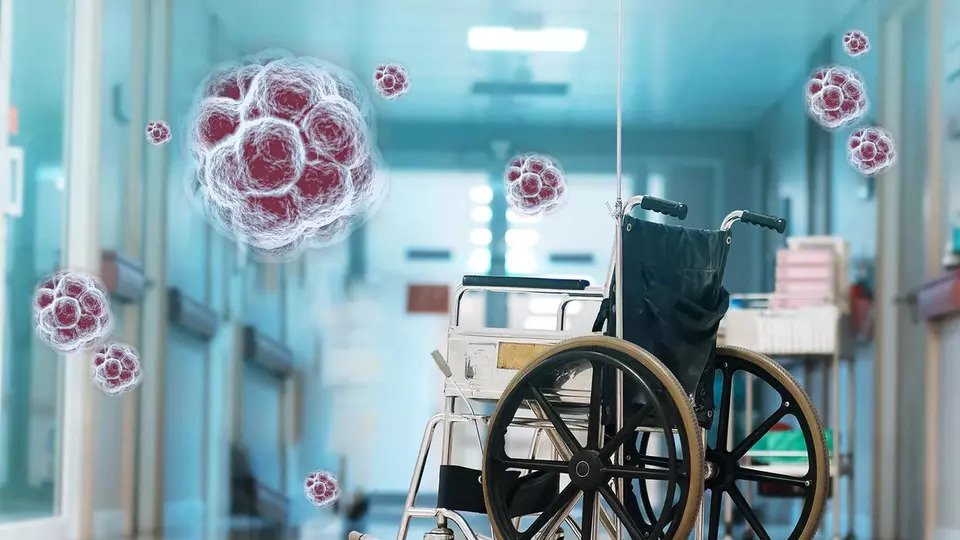Many facilities did not have the necessary equipment to handle the virus, nor did they receive the appropriate guidance on how to minimize the spread in a timely manner in order to keep their residents safe, says Donald Pelligrino. Despite one of the first cases in the U.S., starting in a nursing home, the New Jersey Department of Health did not prepare accordingly and neglected to prioritize the residents of long-term care facilities, says Pelligrino, who owns and operators Bridgeway Senior Healthcare.
By Donald A. Pelligrino
As of Aug. 16, a total of 7,011 of the 15,876 deaths in New Jersey were lab-confirmed COVID-19 deaths of residents and employees of long-term care settings. This accounts for over 40% of the overall COVID-19 deaths in the state that are linked to long term care. The same percentage of the nation’s more than 170,000 COVID-19 deaths also lived in long term care facilities.
Gov. Phil Murphy’s has been criticized widely for the disproportionate number of deaths in long-term care facilities, including nursing homes and assisted living facilities and the lack of an action plan to address these settings. During the early days of the pandemic, these facilities looked to the DOH and commissioner of health for guidance on how to minimize the spread of infection. Instead, facilities were told them must admit residents back from the hospital who were COVID positive. This decision invited the virus into facilities, allowing it to transmit to other residents and employees.
As an owner and operator of facilities in New Jersey, I realized that I could not wait for the state’s guidance. My team made strategic decisions such as shutting down to visitors and supplying employees with masks and other personal protective equipment (PPE), prior to the DOH making it mandatory. Many facilities did not have the necessary equipment to handle the virus, nor did they receive the appropriate guidance on how to minimize the spread in a timely manner in order to keep their residents safe. Despite one of the first cases in the U.S., starting in a nursing home, the New Jersey DOH did not prepare accordingly and neglected to prioritize the residents of long-term care facilities.
While quick to equip hospitals in New Jersey with personal protective equipment (PPE), the DOH was delayed in their response to the long-term care industry. Employees at the DOH cried for more PPE and testing to be provided to the long-term care facilities but were shot down by the leaders of the DOH and were told to “avoid putting any concerns in an email.”
Meanwhile, the State Office of Emergency Management (OEM), in charge of distributing PPE, used arbitrary allocation guidelines that short-changed nursing homes and left them vulnerable due to a lack of necessary equipment, according to the DOH employees. In my facilities, the first PPE received from OEM did not arrive until April 13, about a month after our facility started notifying the state of positive cases among residents in the building.
The DOH decided to allocate tests toward a public drive through testing sites to calm political and public anxiety rather than provide them to the most vulnerable population in long-term care facilities, who were most likely to die from the virus. These early decisions on where to prioritize testing and PPE had a devastating effect on facilities facing some of the earliest outbreaks, as they had no means of detecting or confirming the presence of the virus.
Long-term care providers have a long history of infection prevention citations during annual health inspections. It was the most common deficiency cited in 2018, according to the New Jersey Department of Health. This virus highlighted the importance of allocating resources toward infection prevention and education. Moving forward, the state and long-term care facilities should dedicate more resources toward infection prevention education, strengthening emergency response capabilities through statewide consolidation of PPE, stabilizing facilities through increased reimbursement and increasing wages for front line employees. Long-term care providers should also have a stronger representation within the DOH and should not be forced into the same approach as hospitals, as they deal with a different population with unique needs.
Many of the above-referenced recommendations were referenced in the governor’s newest Executive Directive NO. 20-026, a phased reopening plan for long-term care, few senior care providers in New Jersey were consulted to create this lengthy, complicated directive.
Facilities such as mine will learn from the challenges we faced. Most, if not all, facilities have already implemented an infection prevention plan, bolstered their PPE, and increased wages for front line staff to ensure a second wave of the virus is more manageable. We have learned that we cannot rely on the state to come to our aid during emergencies and we must demand timely and equitable distribution of equipment and services in the future.
While the state was quick to criticize the long-term care providers, they should consider their own inactions and realize that the guidance and aid provided was extremely delayed, which led to the spread of the virus among residents of long-term care facilities. Rather than point the finger at nursing home operators, the DOH needed to work alongside providers to prevent the spread of COVID-19.
In the future, the New Jersey Department of Health needs to listen to feedback from the providers who are on the front lines in these healthcare facilities. Industry leaders and state regulators need to work together to ensure the highest quality of care is being provided. Coordination will result in better outcomes for New Jersey’s most vulnerable citizens, the residents in long-term care.
Donald A. Pelligrino is one of the owners and operators of Bridgeway Senior Healthcare, which includes two nursing homes and two assisted living facilities in Somerset County. Bridgeway Senior Healthcare has been family owned and operated since 1981. He is currently finishing his Executive Master of Health Administration program at Rutgers University.





